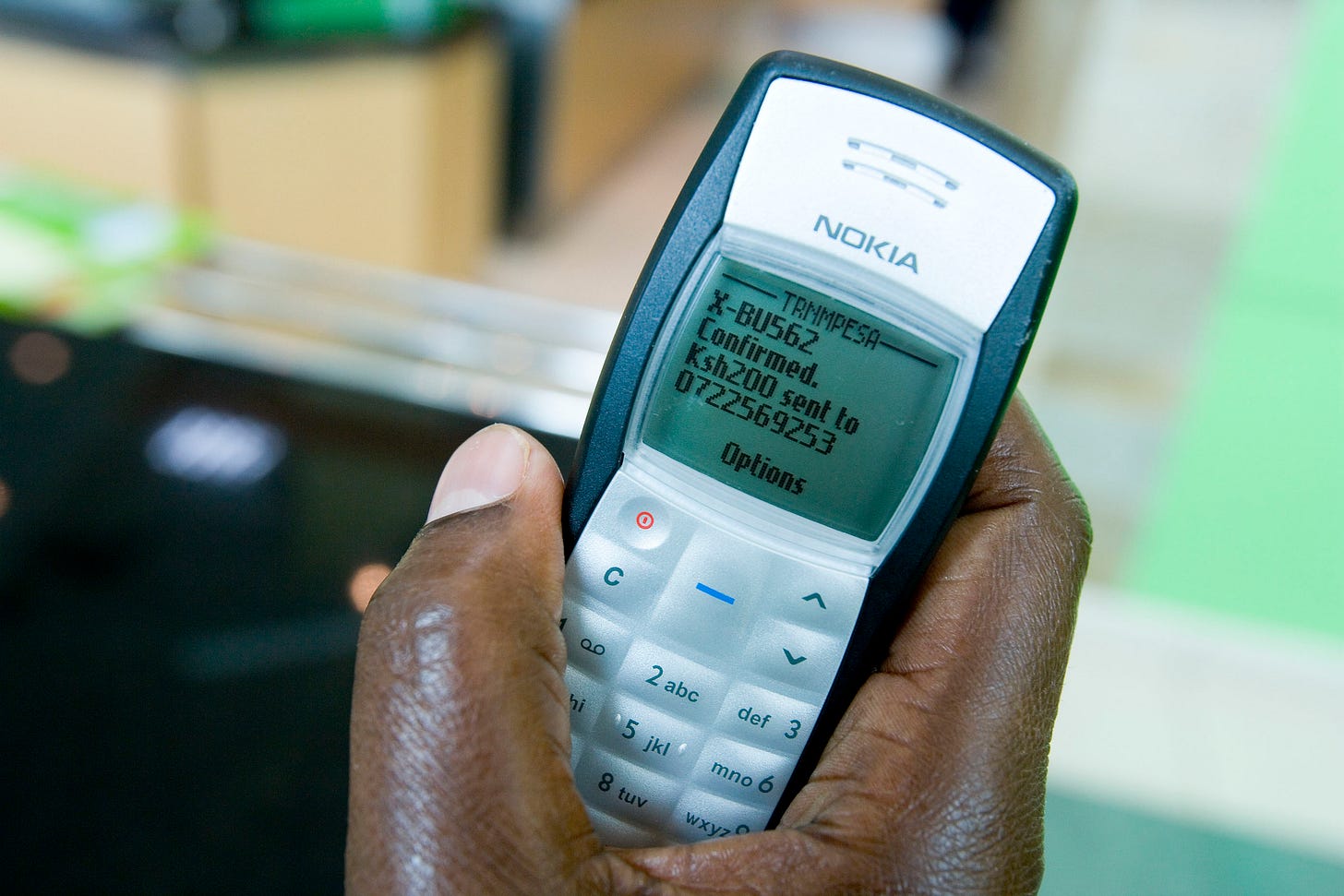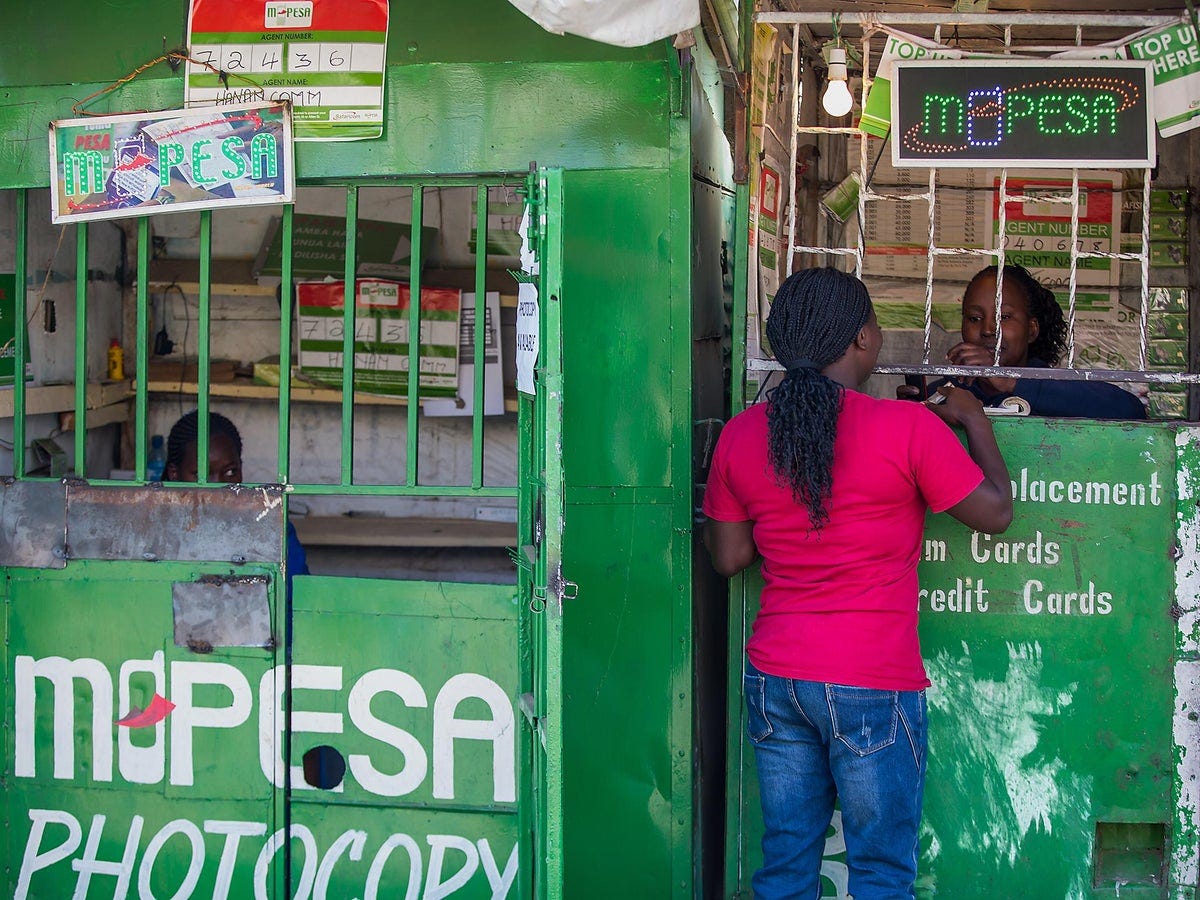Pulse54: The investment case for African telcos
A mix of established market presence, strong demographic tailwinds, and digital revolution makes top African telcos necessary for investors seeking growth and stability in emerging markets.
Hi there!
Welcome to Pulse54! Your guide on what’s old and new in Africa’s investment landscape.
And hello to the new folks who have joined since the last edition.
If you haven't subscribed, join thousands of smart people curious about Africa.
Hey👋🏽 It’s Mike here.
Before we dive in, an announcement:
Daba recently launched the first-ever values-based Collections of stocks listed on the regional BRVM stock exchange.
Our collections allow users to invest in pre-selected groups of stocks that offer exposure to various countries, key sectors or themes with just a few taps.
Check out our blog to learn more or get the Daba app HERE to start investing.
Now, let’s dive in.
Picture this: It's 1995 in Lagos, Nigeria. You need to tell your aunt in Abuja about a family emergency.
Your options? Write a letter that might take weeks to arrive or trek to the nearest public phone booth - if you can find a working one.
Wild, right?
Back then, less than 2 in 100 Africans had access to a phone.
People would travel for hours just to say "Hi, I arrived safely!" Sounds like the Stone Age now, doesn't it?
Communication infrastructure was severely limited before the widespread adoption of mobile phones in the late 1990s and early 2000s.
Making a phone call in most countries meant queuing at a post office or hunting down one of the few landline phones in your neighborhood.
Fixed-line penetration across the continent rarely exceeded 2% of the population, with most countries struggling to establish expensive landline networks.
This communication void created immense pent-up demand, setting the stage for what would become one of the most remarkable technological leapfrogs in history.
The Mobile Revolution
When mobile technology arrived in Africa, it didn't just change the game – it rewrote the rules entirely.
Rather than following the traditional path of building extensive landline networks, Africa jumped directly to mobile technology.
This ‘leapfrog’ phenomenon began in earnest around in the late 1990s.
Companies like MTN, Econet, and Safaricom transformed the landscape by building extensive mobile networks that reached previously underserved populations.
Today, the continent boasts over 527 million unique mobile subscribers, with the GSMA reporting a 44% penetration rate in Sub-Saharan Africa as of 2023.
The Demographic Advantage
This digital transformation coincides with Africa's population growth.
With 60% of the continent's people under 25 years old and a projected population of 2.5 billion by 2050, the growth potential is immense.
GSMA expects mobile internet penetration in Africa will reach 37% by 2030, up from about 27% in 2023, suggesting significant headroom for telco service expansion.
This young, tech-savvy population is hungry for digital services, making them natural customers for telcos' expanding service offerings.
The Case for African Telcos
For investors looking to capitalize on this growth story, African telcos offer something unique: easy accessibility through public markets.
Unlike many African sectors that can be challenging to invest in, major players like MTN Group (JSE: MTN), Airtel Africa (NGX: AIRTELAFRI) Safaricom (NSE: SCOM), and Orange Cote d’Ivoire (BRVM: ORAC) are listed on various stock exchanges, providing transparent entry points for investors.
Their robust corporate governance structures and regular dividend payments make them particularly attractive to investors seeking both growth and stability.
Among the various investment vehicles available, the Daba Telecommunications Collection (a group of major telecom companies listed on the BRVM stock exchange) is a compelling option.
Comprising established players like Sonatel (SNTS), Orange Côte d'Ivoire (ORAC), and Onatel Burkina Faso (ONTBF), this collection demonstrates the sector's potential with a year-to-date return of 30.21%—far more than most emerging markets indexes.
These companies, with their strong market positions and proven business models, deliver consistent returns even in challenging economic environments.
Beyond the Daba collection, African telcos have consistently delivered impressive financial results across the board.
They boast healthy balance sheets with manageable debt levels, making them relatively stable investments in otherwise volatile markets.
Building on this strong foundation, African telcos are also increasingly evolving into technology companies, far beyond their initial role as voice service providers.
They're investing heavily in fintech services such as mobile money, 5G infrastructure, data centers, and also partner with streaming, telemedicine and e-commerce platforms among other digital services providers.
For context, Safaricom’s M-Pesa mobile money processed over $300 billion in 2023 and was the largest contributor to group revenue in 2023.
Africa’s mobile network operators companies aren't just participating in the digital transformation – they're driving it, creating an ecosystem that supports innovation across sectors.

Why Now Is the Time
This convergence of untapped market potential, strong demographic tailwinds, and digital transformation makes African telcos particularly attractive now.
The sector offers exposure to both defensive telecom revenues and high-growth digital services.
With valuations generally lower than global peers and dividend yields often exceeding 5%, these companies present a compelling investment case for forward-thinking investors.
Given all these factors, African telcos represent a unique opportunity.
Whether through direct stock purchases or vehicles like the Daba Collection, they are necessary for investors seeking both growth and stability in emerging markets.
So the question isn't whether to invest in African telcos – it's how much to allocate to this dynamic sector that's powering the continent's digital revolution.
That's all for this week.
You can also download the Daba app to access vetted investment opportunities in African VC - from exciting early-stage startups to professionally managed venture funds.
Until next time!







